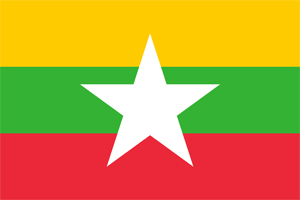AseanReady: Promoting 21st-century skills training ready for the future of work in ASEAN 4.0
Description
This program is initiated by the Character and Leadership Academy (CLA) in Singapore with Futuready.asia and will run from 2018-2025 to mobilize public and private sector support with the Singapore-ASEAN (SAYF) fund as the main source of funding for incubating the concept.
The strategy is to establish AYC hubs across ASEAN by partnering with existing NGOs and social enterprises in ASEAN countries to implement the training program, and to mobilizes financing for operations through the SAYF fund with private or public sector support.
AYC's approach to 21st-century skills training builds on the Innovative Teaching and Learning (ITL) Research's 21st Century skill rubrics and study on the most effective models for professional development.
AYC applied this research to youth leadership practice to make a relevant framework and workshop design for 21CS application, anchored on SDGs In line with AYC's vision to enable youth as partners for sustainable growth in the region.
The design and conduct of the training are contextualized based on the demographic segment of the trainees (ie. highschool, university student, young professional, youth in poor rural/urban areas) and available resources.
The expected outcome: Each individual is able to apply 21st-century skills in carving their own leadership pathway towards contributing to the SDG they care for the most. This makes it meaning or purpose-driven.
The graduates of the training volunteer to conduct free 21st-century skills training to our partner communities as part of their commitment.
Graduates' evolving stories are published in our community blog, where they periodically edit it as their leadership progress in their school, workplace, or communities. This captures the dynamic nature of leadership.
SDGS & Targets
Goal 8
Promote sustained, inclusive and sustainable economic growth, full and productive employment and decent work for all
8.1
8.1.1
Annual growth rate of real GDP per capita
8.2
Achieve higher levels of economic productivity through diversification, technological upgrading and innovation, including through a focus on high-value added and labour-intensive sectors
8.2.1
Annual growth rate of real GDP per employed person
8.3
Promote development-oriented policies that support productive activities, decent job creation, entrepreneurship, creativity and innovation, and encourage the formalization and growth of micro-, small- and medium-sized enterprises, including through access to financial services
8.3.1
Proportion of informal employment in total employment, by sector and sex
8.4
Improve progressively, through 2030, global resource efficiency in consumption and production and endeavour to decouple economic growth from environmental degradation, in accordance with the 10-Year Framework of Programmes on Sustainable Consumption and Production, with developed countries taking the lead
8.4.1
Material footprint, material footprint per capita, and material footprint per GDP
8.4.2
Domestic material consumption, domestic material consumption per capita, and domestic material consumption per GDP
8.5
8.5.1
Average hourly earnings of female and male employees, by occupation, age and persons with disabilities
8.5.2
Unemployment rate, by sex, age and persons with disabilities
8.6
8.6.1
Proportion of youth (aged 15-24 years) not in education, employment or training
8.7
Take immediate and effective measures to eradicate forced labour, end modern slavery and human trafficking and secure the prohibition and elimination of the worst forms of child labour, including recruitment and use of child soldiers, and by 2025 end child labour in all its forms
8.7.1
Proportion and number of children aged 5‑17 years engaged in child labour, by sex and age
8.8
Protect labour rights and promote safe and secure working environments for all workers, including migrant workers, in particular women migrants, and those in precarious employment
8.8.1
Fatal and non-fatal occupational injuries per 100,000 workers, by sex and migrant status
8.8.2
Level of national compliance with labour rights (freedom of association and collective bargaining) based on International Labour Organization (ILO) textual sources and national legislation, by sex and migrant status
8.9
By 2030, devise and implement policies to promote sustainable tourism that creates jobs and promotes local culture and products
8.9.1
Tourism direct GDP as a proportion of total GDP and in growth rate
8.10
Strengthen the capacity of domestic financial institutions to encourage and expand access to banking, insurance and financial services for all
8.10.1
(a) Number of commercial bank branches per 100,000 adults and (b) number of automated teller machines (ATMs) per 100,000 adults
8.10.2
Proportion of adults (15 years and older) with an account at a bank or other financial institution or with a mobile-money-service provider
8.a
8.a.1
Aid for Trade commitments and disbursements
8.b
By 2020, develop and operationalize a global strategy for youth employment and implement the Global Jobs Pact of the International Labour Organization
8.b.1
Existence of a developed and operationalized national strategy for youth employment, as a distinct strategy or as part of a national employment strategy
SDG 14 targets covered
| Name | Description |
|---|
Deliverables & Timeline
Resources mobilized
Country managers and operations team (variable) - depends on operation growth
Partnership Progress
Feedback
Action Network


Timeline
Entity
SDGs
More information
Countries







Contact Information
Lei Motilla, Executive Director
